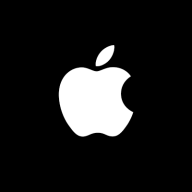

Ionic and Apple Xcode compete in mobile app development, with Ionic known for flexibility and platform compatibility, while Apple Xcode leads in iOS integration and app performance.
Features: Ionic offers cross-platform compatibility, extensive UI components, and facilitates quick development with reusable code. Apple Xcode provides comprehensive iOS development tools, superior native features, and deep integration with Apple's ecosystem.
Room for Improvement: Ionic could enhance its native feature set, improve performance on iOS, and streamline debugging tools. Apple Xcode could expand cross-platform capabilities, reduce dependence on Apple hardware, and simplify its learning curve.
Ease of Deployment and Customer Service: Apple Xcode delivers an intuitive environment with thorough documentation and App Store integration. Ionic supports third-party plugins for easy integration and offers deployment across multiple platforms, although its deployment process could be more streamlined.
Pricing and ROI: Ionic's open-source approach reduces initial costs and speeds ROI through rapid development cycles. Apple Xcode, though hardware-dependent, offers higher ROI through premium app quality and iOS market reach.
| Product | Market Share (%) |
|---|---|
| Ionic | 5.5% |
| Apple Xcode | 3.0% |
| Other | 91.5% |


| Company Size | Count |
|---|---|
| Small Business | 3 |
| Midsize Enterprise | 1 |
| Large Enterprise | 4 |
| Company Size | Count |
|---|---|
| Small Business | 7 |
| Midsize Enterprise | 2 |
| Large Enterprise | 6 |
Apple Xcode is a comprehensive suite of developer tools for producing programs for the Mac, iPhone, iPad, Apple Watch, and Apple TV. Xcode creates a streamlined workflow for user interface design, coding, testing, debugging, and app store submission.
Xcode is an IDE (integrated development environment) designed for both novice and expert developers to use, and it is the only tool that is officially supported for designing and uploading programs to Apple's app store. Xcode contains all of the tools required to construct an app in a single software package, including a text editor, a compiler, and a build system. It includes a number of tools to speed up the development process so that seasoned developers may produce apps with lightning speed and beginners can create apps with ease.
As a code editor, Xcode supports a wide range of programming languages, including C, C++, Objective-C, Objective-C++, Java, AppleScript, Python, Ruby, ResEdit, and Swift.
It employs the Java, Carbon, and Cocoa programming models.
Apple XCode Features
Apple XCode has many valuable key features. Some of the most useful ones include:
Reviews from Real Users
A founder of a tech vendor writes of the solution, “It was essential. You can't develop mobile apps for the Apple platforms without it. I would rate it a nine out of 10 for its consistency. It keeps evolving.”
Ionic is an open-source UI toolkit for developing high-quality mobile and desktop apps with web technologies such as HTML, CSS, and JavaScript. Ionic focuses on the frontend UX and UI interaction of an app – UI controls, interactions, gestures, and animations. It is simple to learn and can be used without any frontend framework by utilizing a simple script inclusion.
While previous versions of Ionic were strongly connected to Angular, version 4.x of the framework was re-engineered to serve as an independent Web Component library, with integrations for the newest JavaScript frameworks, such as Angular. Ionic works well in most frontend frameworks, including React and Vue, however some frontend frameworks require a shim to enable full Web Component support.
The official Ionic CLI, or Command Line Interface, is a tool that enables developers to easily construct Ionic apps and offers a number of useful commands. The CLI installs and updates Ionic and also includes a built-in development server, build and debugging tools, and much more. If you are an Appflow member, you may manage your account and carry out cloud builds and deployments via the CLI.
Ionic Features
Ionic has many valuable key features. Some of the most useful ones include:
Ionic Benefits
There are many benefits to implementing Ionic. Some of the biggest advantages the solution offers include:
We monitor all Mobile Development Platforms reviews to prevent fraudulent reviews and keep review quality high. We do not post reviews by company employees or direct competitors. We validate each review for authenticity via cross-reference with LinkedIn, and personal follow-up with the reviewer when necessary.